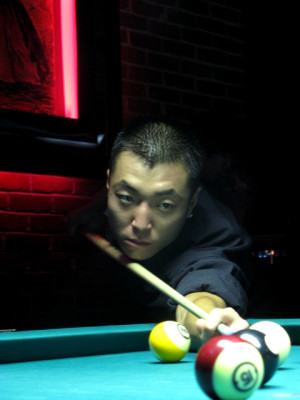As the main voice representing the hip-hop culture, rap music is often misunderstood and disregarded as useless and vulgar street jargon. Frequently stripped of its merits as an intellectual art form, rap’s sudden rise and adoption as one of the world’s most profitable business ventures have managed to raise many eyebrows. Today, rap music defines the worldwide modern pop culture, and for those that still doubt rap’s qualities as a poetic art form, this article aims to shift that perspective.
Rap is, without a doubt, one of the most technically diverse forms of poetry. Its verses consist of the same linguistic devices and elements underlying classic and academic poetry. But what exactly is poetry, then? Poetry can be interpreted in many different ways, but it ultimately describes a rhythmical composition designed as an expression of the mind and self. Rap also follows the same rubric in its construction, both written and spoken in its representation. Every artist possesses a unique and authentic voice, and the art provides the canvas on which to freely explore and define it in one’s own terms.
Using the same strategies employed in literary and poetic devices, the spoken-word poetry of rap requires the understanding of its techniques to be fully appreciated. In other words, learning how and what to listen for are essential to delve deeper into its construction. The rhymes themselves are multisyllabic in nature that often go beyond the two or three syllable end rhymes. Most importantly, the words cannot be taken at their face values and must be deconstructed down to their syllables.
Employing this technique, Eminem is able to rhyme the word “orange” with other seemingly incompatible words in a “60 Minutes” interview: “I put my o-range, four inch, door hinge, in sto-rage, and ate por-ridge with Geo-rge.” It all depends on the enunciation when juggling syllables to create rhymes that should not in the traditional sense. Treat each syllable as its own note, its inflections and enunciation akin to a pluck on a string or a hit on a key. Transform the voice into a unique and authentic musical instrument.
Regarding rhetorical devices, Eminem provides one of the best examples of assonance on “No Love”: “You’ll never sLOw the MOmentum at any MOment, I’m ‘bout to bLOw…killin’ the fLOw, sLOw, veNOm any opPOnent is gettin’ NO…” With this technique, the rhymes are no longer restricted to the words themselves and can be formed within the sandwiched syllables by repeatedly accentuating the vowels. Unfortunately, covering each element of the literal devices stretches way beyond the scope of this article, but some of the most often used include alliteration, allusion, metaphor, extended metaphor, repetition, personification, onomatopoeia and many others.
Yes, rap is poetry by definition, but not all can be considered good poetry. As in any other genres of music, rap has its own share of bad artists, and discovering worthy talents becomes difficult without some knowledge of the craft. The few techniques mentioned here only represent a tiny fraction of the fundamentals defining the art of rap, but they would mean nothing if they cannot be heard. So open up your ears the next time you hear a rap song, and instead of the beat, listen to its poetry.

